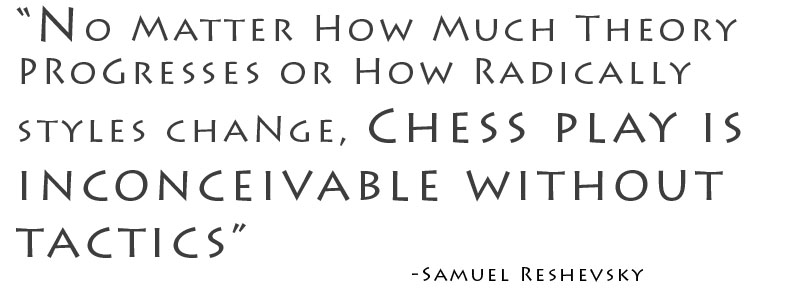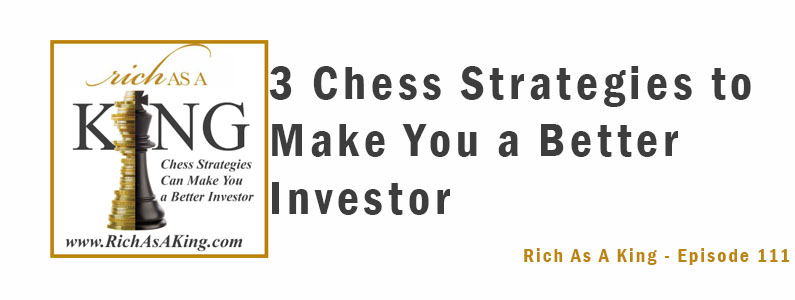
by Doug Goldstein CFP® | Feb 14, 2017 | Chess Strategies, Financial Plan |
How can you improve your investment account management? The answer is to consolidate your investments. If your investments are scattered among different companies, it’s difficult to keep track of what you own, and you may even have duplicate investments. Additionally, you may end up paying more in fees to maintain multiple accounts. To manage your investments more efficiently, follow this chess strategy: Consolidate your assets After a chess team participates in a competition, they review their games and perform a “post mortem” together. The coach and the players analyze the games so that everyone will play better in the future. This purpose of this is to learn from both the good and bad moves, to make the next game even better. The players consolidate their brain power (their assets), to become more effective. This same teamwork applies to managing your money. Your coach (your financial advisor) and your team (your lawyers, accountants, and other professionals) should all look at your portfolio from different perspectives. Each angle brings a unique view to the overall picture. Consolidate your brokerage accounts If your assets are spread out among different firms, your financial advisor won’t know about all of your investments and therefore won’t be able to keep track of them. Without the entire financial picture, he won’t be able to advise you properly. Instead, use one firm – and one advisor – to oversee all your investment or brokerage accounts. Choose one main financial advisor to ACAT (automatic account transfer) accounts from the other brokerage firms into his firm. For example, you could consolidate your IRA accounts, 401(k) accounts, CDs, and bank deposits all into the same firm. This way, all of your assets will... Click for more

by Doug Goldstein CFP® | Aug 18, 2016 | Chess Strategies, Strategic Thinking |
What is the most important tool you need for success in chess? Amazingly enough, the same one tool can help you achieve success in chess, money, and life in general. Sam Reshevsky, one of the greatest chess players in modern times, answers that the one tool needed for success is tactics. As he once said, “No matter how much theory progresses, how radically styles change, chess play is inconceivable without tactics.” Time moves on, and so do theories Life never remains static. As technological, industrial, and political changes alter our landscape, new theories of “the best” develop. Similarly, in chess, the style of play evolved over the centuries. New rules, openings, middle games, and endgames all developed. Today, you can play the game according to a variety of styles and techniques. Nevertheless, your efforts to succeed in chess, investing, or anything else will only be effective if you first develop a strategy and the tactics needed to implement it. It really doesn’t make a difference what theory or goal you want to achieve, since the tactics that you use are what will make all the difference. Here’s one tactic for success: Keep inspirational chess quotes like Samuel Reshevsky’s nearby. Download the Rich As A King poster book here and enjoy the posters. Get FREE Chess Quote Poster Book Douglas Goldstein, co-author of Rich As A King: How the Wisdom of Chess Can Make You A Grandmaster of Investing, is an avid chess fan, international investment advisor and Certified Financial Planner (CFP®).... Click for more

by Doug Goldstein CFP® | Aug 4, 2016 | Chess Strategies, Strategic Thinking |
Here are three commonly used chess strategies that can be applied to both chess and investing: Never give up Chess Playing chess can be challenging. Sometimes you may feel as if winning a game is an elusive goal. Yet, even in these difficult situations, don’t give up. While resigning will definitely result in a loss, you will never know what may happen if you continue playing. Maybe your opponent will make a mistake, allowing you to win the game, or at the very least, you might have a stalemate. The opposite of winning isn’t always losing. Investing You may be tempted to change your investing strategy if the market is “underperforming.” Yet, as long as your investment strategy is solid, don’t be quick to revise it. Market swings are inevitable, so stick to your asset allocation and investment strategy as much as possible. An effective investment strategy takes into consideration market fluctuations and strives to maximize gains while minimizing losses. Work as a team Chess Although chess may look like a solitary game, chess players often play together as a team. They reach their joint goal, to bring victory to their team, by training together many hours a day. Each team has a coach whose job is to emphasize the different player’s strengths, to allow each player’s positive traits to shine. The team can only win once everyone makes a maximum effort. Investing Teamwork in investing is crucial if you want to see good results. You, or your financial advisor, are the head of your investing team. The team includes your spouse, accountant, lawyer, insurance agent, and depending on... Click for more

by Doug Goldstein CFP® | Jul 7, 2016 | Chess, Chess Strategies |
Forward thinking is key for both chess and money management. Not only is that the basis for Susan Polgar’s and my book, but it was the topic of a conversation I had with Professor Harry Markowitz, Nobel Prize winner and father of Modern Portfolio Theory. What it takes to win Winning a chess game requires having a plan and executing it on a constantly changing field. Winning the financial game requires having goals and creating a financial plan that will achieve them, while accounting for unknown market volatility that will occur years in the future. Yet, it is not enough to have a strategic plan and be able to execute it… otherwise there would be more chess grandmasters and more millionaires in the world. This is what happens when a Nobel Prize winner analyzes a game of chess One of the main differences between a grandmaster and a recreational chess player is seen in the forward thinking skills they employ during play. Needless to say, when I played chess with Grandmaster Susan Polgar, I lost. Professor Markowitz analyzed why: “…try to think through the long-run consequences of a move. So we play the investment game or the trading game one move at a time, and we have to think forward. We use Monte Carlo to help us think forward, and good happens because of it. So that is like chess. Susan was able to think more moves forward and about more paths than you’re able to.” From here, it appears that the key to winning is strategic forward thinking. However, this does not mean thinking tens of moves ahead... Click for more

by Douglas Goldstein | May 17, 2016 | Chess Strategies, Financial Strategies, Podcasts |
Do you want to become a better investor? Three chess strategies helped Susan Polgar’s collegiate chess team win the national championship six times in a row. Find out what these strategies are and how they can help you become a better investor and financial... Click for more

by Douglas Goldstein | Apr 12, 2016 | Chess, Chess Strategies, Financial Strategies, Podcasts |
Protect your money by using an amazing chess move – castling. How does this “castling” work, and what’s its connection with investing? This financial podcast explains the basic steps for keeping your money and your family safe from financial... Click for more










